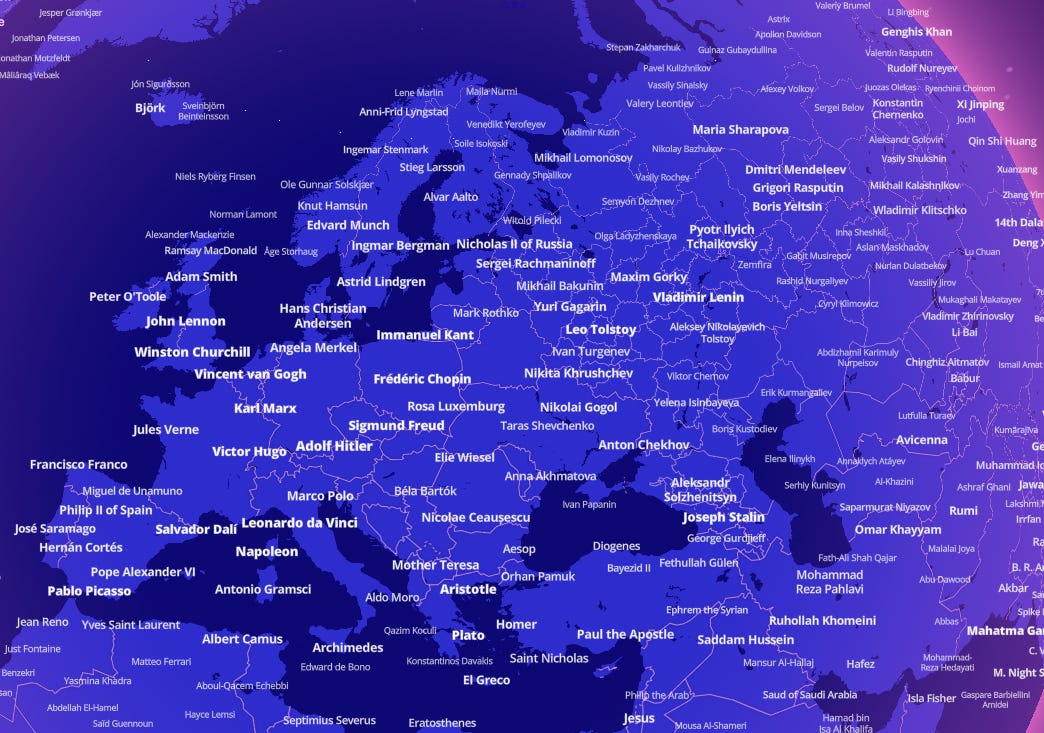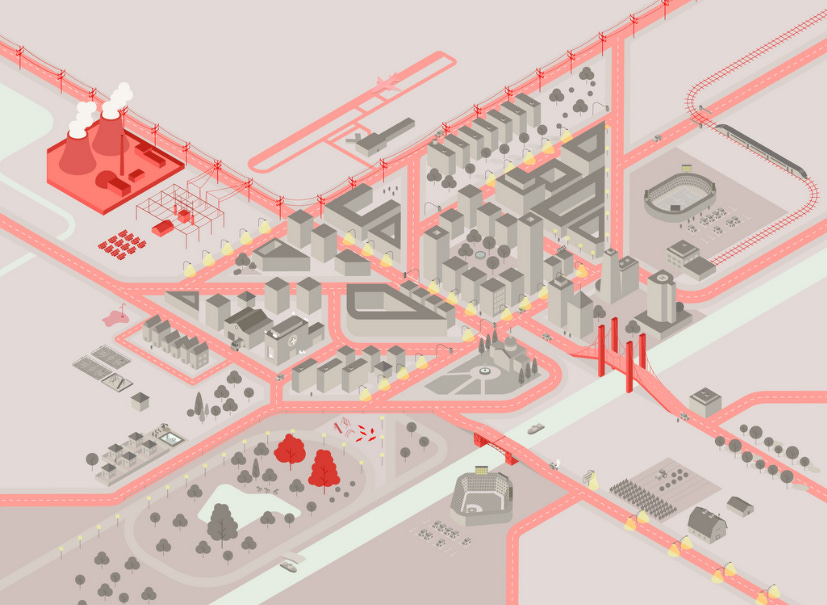smart but unhappy, climate friendly microwave food & war logistics
CC#45 - The Worth of a Friend, Not so Evil Plastic Bags & Normal Distributions in the Gym
Hey there and welcome to ✨ CuratedCuriosity - a bi-weekly newsletter delivering inspiration from all over the internet to the notoriously curious.
Things I Enjoyed Reading.
🧠 Why aren't smart people happier?
An attempt to get at the reasons for why people who score high on IQ tests often don’t end up living happier lives + the fundamental difference between well- and poorly-defined problems.
One way to spot people who are good at solving poorly defined problems is to look for people who feel good about their lives; “how do I live a life I like” is a humdinger of a poorly defined problem. The rules aren’t stable: what makes you happy may make me miserable. The boundaries aren’t clear: literally anything I do could make me more happy or less happy. The problems are not repeatable: what made me happy when I was 21 may not make me happy when I’m 31. (…) This is why the people who score well on intelligence tests and win lots of chess games are no happier than the people who flunk the tests and lose at chess: well-defined and poorly defined problems require completely different problem-solving skills. Life ain’t chess! Nobody agrees on the rules, the pieces do whatever they want, and the board covers the whole globe, as well as the inside of your head and possibly several metaphysical planes as well.
🍲 Notes on Progress: An environmentalist gets lunch
Food that feels ‘good’ from an environmental viewpoint often isn’t necessarily that good when looking at the plain numbers - a (probably) unpopular opinion on the way we eat.
Watching me make a meal looks like an environmental travesty. I almost exclusively use the microwave. I don’t take time to savour the process: a meal that takes longer than ten minutes is one that’s not worth having. It nearly always comes from a packet. My avocados are shipped over from Mexico, and bananas transported from Angola. It’s rare that my food is produced locally. Or if it is, I don’t check the label enough to notice.
This is the opposite of what seems sustainable. The image we have in our head of the ‘environmentally-friendly meal’ is one that’s sourced from the local market; produced on an organic farm without nasty chemicals; and brought home in a paper bag, not a plastic wrapper. Forget the processed junk: it’s meat and vegetables, as fresh as they come. We set aside time to cook them properly, in the oven.
I know that my way of eating is low-carbon. I’ve spent years poring over the data. Microwaves are the most efficient way to cook. Local food is often no better than food shipped from continents away. Organic food often has a higher carbon footprint. And packaging is a tiny fraction of a food’s environmental footprint, and often lengthens its shelf-life.
⚔️ Collections: Logistics, How Did They Do It, Part I: The Problem
Have you ever wondered how it was possible to move hundred of thousands of soldiers across continents in the Roman Age? I certainly haven’t, but this article on the logistics of warfare is truly fascinating.
That gives us an army now of 19,200 soldiers, 4,000 non-combatants, 5,000 mules and 4,800 horses. Roman rations were pretty ample and it seems likely that many of the calones did not eat so well but the ranges are fairly narrow; we can work with an average 1.25kg daily ration per person normally. (…) That’s a normal consumption of 29,000kg per day for the humans, with the minimum restricted diet of 19,256kg for short periods. (…) And at last we now have the scale of our problem: our lean army of 19,200 fighting men consumes an astounding 61,850kg of food daily. It also consumes staggering amounts of water and firewood. In order to move this army or sustain it in place it is thus necessary to ensure a massive and relatively continuous supply of food to the army. Failure to do that will result in the army falling apart long before it comes anywhere close to the enemy.
Food for Thought.
🛍 Plastic Bags are not that evil after all.


⏰ Interesting Findings from the American Time Usage Survey. Bar height corresponds to how common it was for people to engage in a specific activity.

👫 How much is a good friend ‘worth’?


Random Stuff.
🗺 A map of birthplaces of the most ‘notable’ people around the world.

🏘 How would a city under extreme heat look like? Welcome to the (still) fictional town ‘Meltville’!
🏋️ Normal distributions and behavioral biases are everywhere.
Personal Update.
Lot’s of weekend bliss in September - got to celebrate the wedding of two lovely people last weekend, spent this weekend at the Global Shapers Copenhagen retreat and looking forward to going to Hamburg next weekend for the Reeperbahnfestival 🥳
Inbetween there has also been a little time for some work - I am currently trying to initiate a couple of new research projects that I think are exciting (keeping my fingers crossed they work out), attending a course in Advanced Network Science (as a consequence everything looks like a network to me these days) and teaching some super engaged master students in Elementary Social Data Science (not sure who is learning more in those exercise classes - them or me).





